

Click here to view our Ramadan Operating Hours.
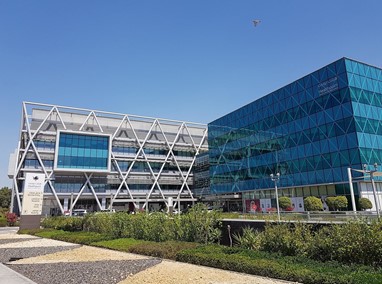
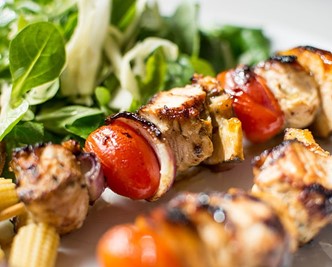
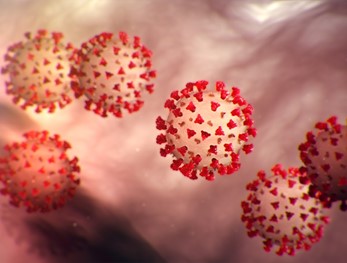
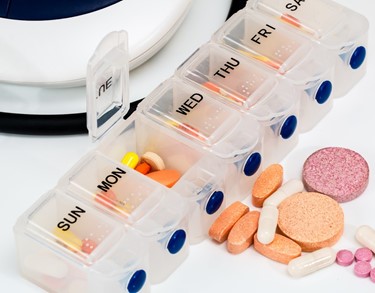
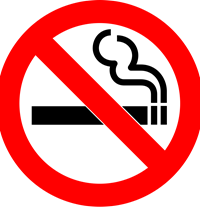
If you’re having a general anaesthetic, in order to avoid the last minute cancellation of your surgery please inform your surgical team of any:






If you’re having a general anaesthetic, in order to avoid the last minute cancellation of your surgery please inform your surgical team of any:

Your wishes and those of your child are very important and we want to work with you to provide the best possible care for your family.
It may be possible for you and your child to choose how anaesthetic and other medicines are given. Sometimes there are medical reasons why things have to be done in a certain way, these will be explained to you. Nothing will happen unless you understand and agree with what has been planned.
Talk to your child about why they have to go to hospital, when they are going to go in, and what they can expect to happen.
Everything should be explained to your child in a way they understand. If you find it difficult to communicate with your child, members of our nursing team can help give explanations and encourage discussion through play. They are very experienced in caring for children around the time of surgery.
Use simple words your child understands to explain the operation or investigation will help them to get better. Tell them how long their operation or investigation could last, and how long they will have to stay in hospital. If they will have to stay in overnight, let them know if you will be able to stay too. If it’s not possible for you to stay with your child, it is important you tell them when you will be able to visit.
Encourage your child to talk about the operation and ask questions. Books, games and stories can help.
Your child can help pack their own bag and decide which clothes and toys to bring. Please let us know in advance any special requirements your child has and we will do whatever we can to help.

Children must have empty stomachs for the anesthetic. This is very important to protect their lungs from any stomach contents when they are asleep.
Your child must have no food for 6 hours before the anesthetic.
Your child must have no water for 2 hours before the anesthetic.
Your child must have no breast milk 4 hours before the surgery.
We will do our best to minimise the fasting times for your child as we understand it can be difficult for them but it is key to having safe surgery.
Occasionally the anaesthetist may learn something about your child that means it would be safer not to do the procedure on that day. This could happen if your child has a bad cold, has a rash or has eaten food too recently.
Occasionally the anaesthetist may learn something about your child that means it would be safer not to do the procedure on that day. This could happen if your child has a bad cold, has a rash or has eaten food too recently.
Premedication (a premed) is the name for drugs which are sometimes given before an anaesthetic. Some premeds help your child to relax, and some are given for other reasons.
Not every child needs a premed, depending on the kind of surgery and your child’s condition, you will often be able to help decide, with the anaesthetist, whether your child needs a premed or not.
If your child does need a premed, this will usually be given as a liquid, however, an injection is essential occasionally. Premeds are given some time before the anaesthetic and they may make your child drowsier after the operation or investigation. If this is the case and you plan to take him or her home on the same day, this may be delayed.
The drugs that can be used as a premedication can be:
We will provide a gown for your child to wear but your child will be able to keep their underwear on. Your child may travel to the operating room in a bed, on a trolley, walking or being carried and will be accompanied by a nurse at all times.
Your child will be able to take a toy or comforter.
If you wish, you will usually be welcome to stay with your child until he or she is unconscious. However, there are a few circumstances when this will not be possible. Your child may have either an anaesthetic gas to breathe or an injection through a cannula (small needle), it may be possible to give the anaesthetic while your child is sitting on your lap.
You do not have to accompany your child to the anaesthetic room. If you prefer, you can ask a nurse to go with them.
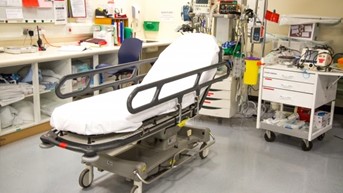
Each child is cared for by a specialist nurse until he or she has regained consciousness and is comfortable enough to return to the ward or to go home.
Pain relieving drugs are given during the anaesthetic to ensure that your child is as comfortable as possible after surgery. The type and strength of pain relief given will depend on the procedure. You will have a chance to discuss and help plan the kind of pain relief (analgesia) your child will get after their operation. This will be with the anaesthetist, the surgeon or the ward nurses.
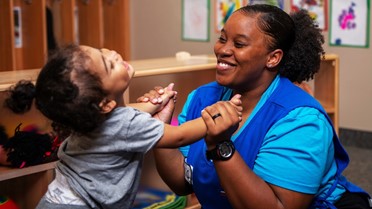
Your wishes and those of your child are very important and we want to work with you to provide the best possible care for your family.
It may be possible for you and your child to choose how anaesthetic and other medicines are given. Sometimes there are medical reasons why things have to be done in a certain way, these will be explained to you. Nothing will happen unless you understand and agree with what has been planned.
Talk to your child about why they have to go to hospital, when they are going to go in, and what they can expect to happen.
Everything should be explained to your child in a way they understand. If you find it difficult to communicate with your child, members of our nursing team can help give explanations and encourage discussion through play. They are very experienced in caring for children around the time of surgery.
Use simple words your child understands to explain the operation or investigation will help them to get better. Tell them how long their operation or investigation could last, and how long they will have to stay in hospital. If they will have to stay in overnight, let them know if you will be able to stay too. If it’s not possible for you to stay with your child, it is important you tell them when you will be able to visit.
Encourage your child to talk about the operation and ask questions. Books, games and stories can help.
Your child can help pack their own bag and decide which clothes and toys to bring. Please let us know in advance any special requirements your child has and we will do whatever we can to help.

Children must have empty stomachs for the anesthetic. This is very important to protect their lungs from any stomach contents when they are asleep.
Your child must have no food for 6 hours before the anesthetic.
Your child must have no water for 2 hours before the anesthetic.
Your child must have no breast milk 4 hours before the surgery.
We will do our best to minimise the fasting times for your child as we understand it can be difficult for them but it is key to having safe surgery.
Occasionally the anaesthetist may learn something about your child that means it would be safer not to do the procedure on that day. This could happen if your child has a bad cold, has a rash or has eaten food too recently.
Occasionally the anaesthetist may learn something about your child that means it would be safer not to do the procedure on that day. This could happen if your child has a bad cold, has a rash or has eaten food too recently.
Premedication (a premed) is the name for drugs which are sometimes given before an anaesthetic. Some premeds help your child to relax, and some are given for other reasons.
Not every child needs a premed, depending on the kind of surgery and your child’s condition, you will often be able to help decide, with the anaesthetist, whether your child needs a premed or not.
If your child does need a premed, this will usually be given as a liquid, however, an injection is essential occasionally. Premeds are given some time before the anaesthetic and they may make your child drowsier after the operation or investigation. If this is the case and you plan to take him or her home on the same day, this may be delayed.
The drugs that can be used as a premedication can be:
We will provide a gown for your child to wear but your child will be able to keep their underwear on. Your child may travel to the operating room in a bed, on a trolley, walking or being carried and will be accompanied by a nurse at all times.
Your child will be able to take a toy or comforter.
If you wish, you will usually be welcome to stay with your child until he or she is unconscious. However, there are a few circumstances when this will not be possible. Your child may have either an anaesthetic gas to breathe or an injection through a cannula (small needle), it may be possible to give the anaesthetic while your child is sitting on your lap.
You do not have to accompany your child to the anaesthetic room. If you prefer, you can ask a nurse to go with them.

Each child is cared for by a specialist nurse until he or she has regained consciousness and is comfortable enough to return to the ward or to go home.
Pain relieving drugs are given during the anaesthetic to ensure that your child is as comfortable as possible after surgery. The type and strength of pain relief given will depend on the procedure. You will have a chance to discuss and help plan the kind of pain relief (analgesia) your child will get after their operation. This will be with the anaesthetist, the surgeon or the ward nurses.
